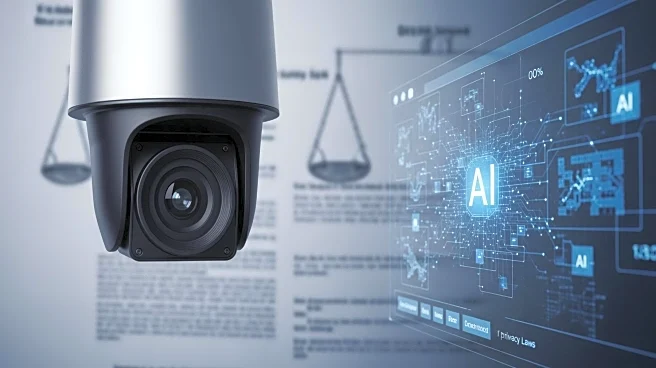What's Happening?
The Video Privacy Protection Act (VPPA), established in 1988, is facing challenges in its application due to advancements in artificial intelligence (AI). Originally enacted after Robert Bork's video rental
history was disclosed, the VPPA imposes liability on video rental service providers that disclose rental histories. Courts have struggled with defining the scope of disclosures covered by the VPPA, especially as the law now includes streaming services and websites offering video content. AI tools, such as OpenAI's ChatGPT, can process data and potentially identify personal information, complicating the legal standards for liability under the VPPA. Recent court rulings indicate that AI could raise the standard of what an ordinary person can do, affecting the interpretation of the law.
Why It's Important?
The implications of AI on the VPPA are significant for privacy law and data protection. As AI tools become more sophisticated, they challenge existing legal frameworks by potentially altering what constitutes a privacy violation. This development could impact companies like Netflix and other streaming services, as well as websites that handle video content. The evolving interpretation of the VPPA may lead to increased litigation and a need for updated privacy regulations. Stakeholders in the tech industry, legal professionals, and privacy advocates are closely monitoring these changes, as they could redefine privacy standards and affect consumer data protection.
What's Next?
The ongoing legal debates around AI's impact on the VPPA suggest potential for further circuit splits, as courts differ in their interpretations. Legal experts anticipate that AI's role in privacy law will continue to evolve, possibly leading to new legislative measures or amendments to existing laws. Companies involved in privacy litigation may need to adjust their compliance strategies to account for AI's capabilities. Additionally, the broader legal community may see increased discussions on the balance between technological advancements and privacy rights.
Beyond the Headlines
The integration of AI into privacy law raises ethical questions about data processing and user consent. As AI tools become more prevalent, there is a risk of diminishing privacy protections if legal standards do not adapt. This situation underscores the need for a comprehensive approach to privacy legislation that considers technological advancements. The debate also highlights the importance of public awareness and education on data privacy issues, as individuals navigate an increasingly complex digital landscape.











